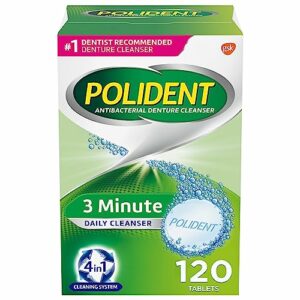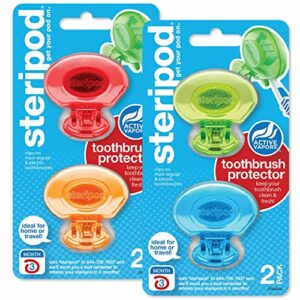Are you experiencing the discomfort of sensitive teeth? We understand how frustrating it can be to deal with the pain and sensitivity that comes with it. That’s why we have created a step-by-step guide to help alleviate sensitive teeth pain. The purpose of this guide is to provide you with simple and effective methods to find relief and improve your overall dental health. We hope that by following these steps, you will be able to enjoy a pain-free and enjoyable eating experience once again.
Gentle Solutions for Tender Teeth
Identify the cause of sensitivity
To understand the underlying cause of your sensitive teeth, examine common factors such as tooth decay, enamel erosion, gum recession, or teeth grinding. Look for signs of decay, such as cavities or dark spots on your teeth. Check for eroded enamel by observing any thin or transparent areas. Inspect your gums for recession, characterized by exposed tooth roots. Additionally, evaluate if you grind your teeth at night, which can lead to sensitivity.
Practice good oral hygiene
Brush your teeth gently with a soft-bristled toothbrush twice a day. This helps remove plaque and bacteria that can cause cavities and gum disease. Use fluoride toothpaste to strengthen your teeth and prevent tooth decay. Don’t forget to floss daily to remove food particles and plaque from between your teeth, which can help prevent tooth sensitivity and gum problems.
Avoid acidic foods and drinks
To limit your consumption of acidic foods and drinks, avoid citrus fruits like oranges and lemons, as well as tomatoes, soda, and coffee. These items can erode tooth enamel and worsen sensitivity. Instead, opt for less acidic options such as bananas, cucumbers, water, and herbal tea. Remember to rinse your mouth with water after consuming acidic foods or drinks to help neutralize the acidity.
Use a desensitizing toothpaste
To choose a toothpaste specifically formulated for tooth sensitivity, look for products that contain ingredients like potassium nitrate or stannous fluoride. These ingredients help block pain signals and protect exposed dentin. One example is Sensodyne Pronamel Gentle Whitening Toothpaste, which is designed to protect tooth enamel while providing relief from sensitivity. Another option is Colgate Sensitive Pro-Relief Toothpaste, which contains arginine and calcium carbonate to help seal open dentinal tubules and prevent sensitivity.
Apply fluoride gel or varnish
To have fluoride gel or varnish applied to your teeth, visit your dentist. This simple procedure strengthens your enamel and helps reduce sensitivity. Your dentist will apply the gel or varnish onto your teeth, ensuring that they are evenly coated.
Use a soft-bristled toothbrush
Switch to a soft-bristled toothbrush for gentle care of your sensitive teeth and gums. Gently brush your teeth using circular motions, ensuring that the bristles reach all surfaces. Remember to replace your toothbrush every three to four months, or sooner if the bristles become frayed.
Avoid teeth grinding
If you grind your teeth, it is important to discuss with your dentist about wearing a nightguard. This will help protect your teeth from further damage and sensitivity. To do this, follow these steps:
- Schedule an appointment with your dentist.
- Explain to your dentist that you grind your teeth and discuss the symptoms you are experiencing.
- Ask your dentist about the possibility of wearing a nightguard to protect your teeth.
- If your dentist recommends a nightguard, ask about the different types available and which one would be best suited for you.
- Follow your dentist’s instructions on how to use and maintain the nightguard properly.
- Wear the nightguard every night as recommended by your dentist.
- Regularly visit your dentist for check-ups to ensure the nightguard is effective and to address any concerns or issues that may arise.
Remember, wearing a nightguard can help protect your teeth from further damage caused by teeth grinding and alleviate sensitivity.
Modify your diet
To promote healthy teeth and strengthen enamel, include more foods rich in calcium and vitamin D in your diet. Incorporate dairy products like milk, cheese, and yogurt, as well as leafy greens like spinach and kale. Additionally, avoid excessive consumption of sugary foods and drinks, as they can contribute to tooth decay.
Visit your dentist regularly
Schedule regular dental check-ups to address any underlying dental issues and receive professional advice on managing tooth sensitivity. By making regular appointments with your dentist, you can stay ahead of any potential problems and take proactive steps towards maintaining a healthy smile. During these check-ups, your dentist will carefully examine your teeth and gums, and provide tailored recommendations to help you effectively manage tooth sensitivity and maintain optimal oral health.
Finding Relief for Sensitive Teeth
In conclusion, we hope this guide has provided helpful insights on how to alleviate sensitive teeth pain. We have emphasized the importance of identifying the cause of sensitivity, as it allows for targeted treatment. Practicing good oral hygiene, including using a soft-bristled toothbrush and avoiding acidic foods, can also help prevent and reduce sensitivity. Additionally, utilizing desensitizing products, such as toothpaste or mouthwash, can provide temporary relief. However, if the pain persists or worsens, it is crucial to seek professional dental care. Remember, taking steps to address sensitive teeth can greatly improve your overall oral health and quality of life.
Necessary Supplies
Relief for Sensitive Teeth
Tips and Techniques for Finding Relief from Sensitive Teeth
- Start by applying a small pea-sized amount of sensitive teeth relief toothpaste on a soft-bristle toothbrush
- Gently brush your teeth for at least two minutes, making sure to cover all surfaces of your teeth and gums
- Rinse your mouth thoroughly with water, ensuring that all the toothpaste is removed
- Use a fluoride mouthwash or rinse with a fluoride-containing mouthwash for added protection and relief
- Avoid consuming hot or cold food and drinks immediately after using the sensitive teeth relief toothpaste to allow the ingredients to work effectively
Finding Relief for Sensitive Teeth
Do you grind your teeth or clench your jaw while sleeping?
No, we do not grind our teeth or clench our jaw while sleeping. However, if you are experiencing this issue, it is important to consult with a medical professional as it could be a sign of a condition called bruxism. They will be able to provide you with the appropriate guidance and treatment options.
How would you rate the impact of tooth sensitivity on your daily life and overall well-being?
Tooth sensitivity can have a significant impact on our daily lives and overall well-being. It can cause discomfort and pain when eating or drinking certain foods and beverages, making it challenging to enjoy meals. The constant awareness of potential sensitivity can also result in anxiety or hesitation when consuming hot or cold substances.
Furthermore, tooth sensitivity can affect our oral hygiene routine, as brushing and flossing may become painful or uncomfortable. This can lead to a decrease in our oral health, possibly resulting in other dental issues like cavities or gum disease.
The discomfort caused by tooth sensitivity may also impact our overall quality of life. It can cause disturbances during sleep, making it difficult to get a good night’s rest. Additionally, the pain and sensitivity can be distracting and affect our ability to concentrate on daily tasks or responsibilities.
Overall, the impact of tooth sensitivity on our daily life and well-being can be quite significant. It can affect our ability to enjoy food, maintain good oral hygiene, and impact our overall quality of life. Seeking proper dental care and treatment for tooth sensitivity is crucial to alleviate these concerns and improve our well-being.
Have you recently had any dental procedures that could be causing temporary sensitivity?
No, we haven’t recently had any dental procedures that could be causing temporary sensitivity. Is there anything specific you would like to know about dental procedures or sensitivity? We’re here to help.
Do you have any underlying dental conditions that may be contributing to your tooth sensitivity?
We’re sorry to hear that you’re experiencing tooth sensitivity. As an AI, we don’t have personal dental conditions. However, tooth sensitivity can be caused by various underlying dental issues. Some common conditions that may contribute to tooth sensitivity include tooth decay, gum disease, enamel erosion, cracked teeth, or exposed tooth roots. It’s important to consult with a dentist who can examine your specific dental health and provide a proper diagnosis. They will be able to determine if any underlying conditions are contributing to your tooth sensitivity and recommend appropriate treatment options.
Are you using a toothbrush with hard bristles or brushing too aggressively?
No, we are not using a toothbrush with hard bristles or brushing too aggressively.
Have you noticed an increased sensitivity to sweet or acidic foods?
Yes, we have noticed that people can experience an increased sensitivity to sweet or acidic foods. This sensitivity can be caused by various factors such as dental issues, changes in taste buds, or certain medical conditions. It is important to note that if you are experiencing this sensitivity, it is recommended to consult a healthcare professional for a proper diagnosis and advice on how to manage it.
Have you spoken to your dentist about your tooth sensitivity concerns?
No, we haven’t spoken to our dentist about our tooth sensitivity concerns yet. It’s something that we’ve been experiencing for a while now, and it’s been causing us a lot of discomfort. We know that it’s important to address this issue and seek professional advice, but we just haven’t gotten around to making an appointment. We understand that our dentist would be the best person to provide guidance and recommend any necessary treatments or remedies for our tooth sensitivity.
Are your gums receding, exposing the sensitive tooth roots?
Yes, it is possible for our gums to recede, which can lead to the exposure of sensitive tooth roots. Gum recession occurs when the gum tissue around our teeth pulls back, revealing more of the tooth’s surface or even the tooth root. This can cause sensitivity to hot or cold temperatures, as well as discomfort while eating or drinking. If you are experiencing gum recession and sensitivity, we recommend consulting with a dentist who can provide you with the appropriate treatment options to address this issue.






















